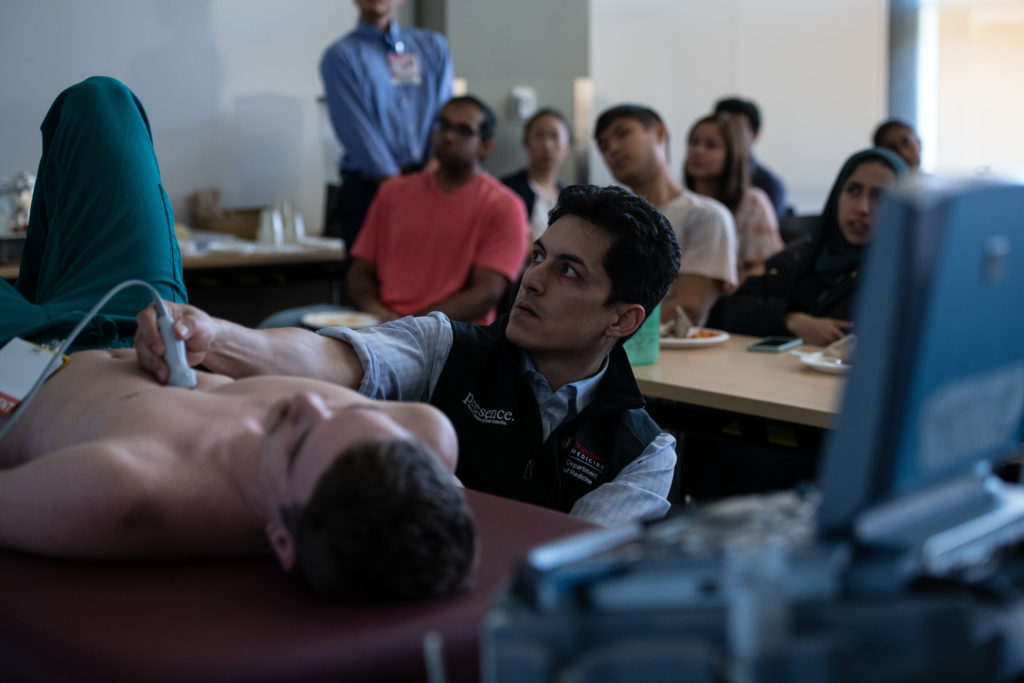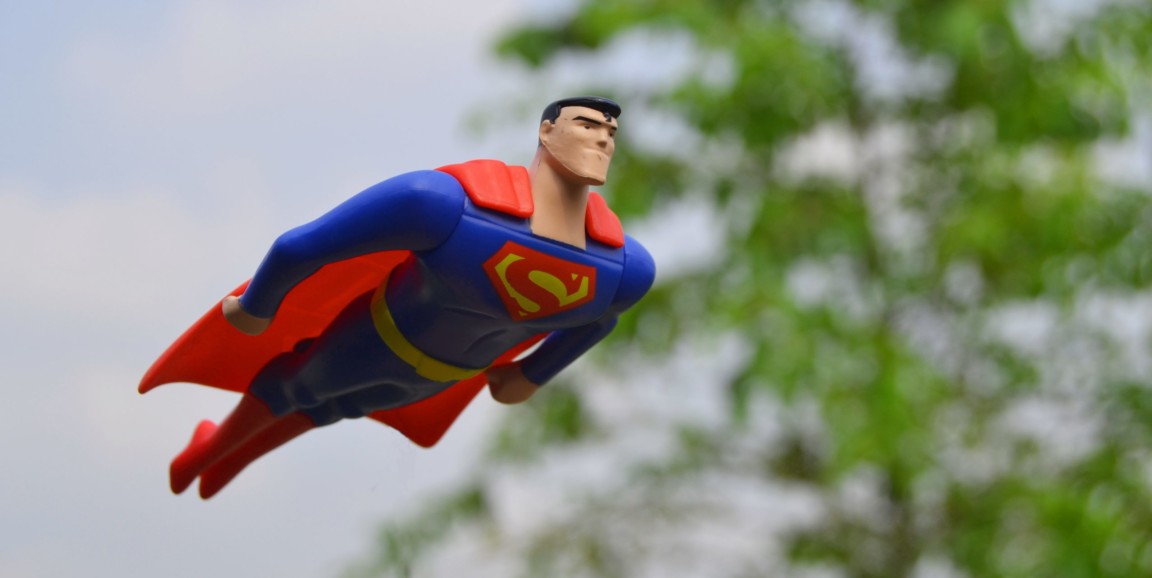Normally, Stanford hospitalist Errol Ozdalga, MD, is careful to make diagnoses for his patients based on their symptoms and test results. Not long ago, however, he had the opportunity to create medical explanations for superheroes using only his imagination and fascination with the human body.
In a series of videos, Ozdalga accounts for the fantastical powers of superheroes and supervillains using real-life explanations. For example, how does Aquaman breathe underwater? The secret is taking up oxygen through his skin like a frog. I caught up with Ozdalga to learn more.
Are you a big comics fan?
I've always loved comic-related things like Superman since I was a kid, but I should tell you I'm not a die-hard comics and superheroes person. I have a friend who is an editor for a company that published a book on the physiological properties that allow superheroes and supervillains to do what they do. I thought the idea for this book was really cool so when she asked, I was happy to volunteer.
I wasn't aware that anything like this had ever been explored and thought it would be fun to look at how these superpowers might be possible from a physiological standpoint.
So, this project was rooted in your interest in medicine?
That was the fun part for me. What got me interested in medicine was physiology. When I first started college, I thought I was going to be a therapist because I like talking with people and that feeling of helping people. But then I took a human biology class, and I was like, "Oh, wow, this is amazing."
All the different physiological processes that are going on inside our bodies right now, from a molecular to a cellular level, are just unbelievable. It's like when an astronomer looks at the stars and it's this amazing feeling of wonder. That's kind of how I look at the human body. I knew immediately that medical school was my trajectory.

How do you develop your explanations for these fictional superpowers using actual biology? For example, how did Superman get his super speed?
I was looking at it through that same lens I had when I first fell in love with the human body. I would take known things in the human body and then extrapolate from there -- so, what if someone didn't just have a little bit more of one thing, but they had a thousand times more to make it to turn it into a superpower?
For example, with Superman and his super speed, why are some people faster than others? I would take that and then extrapolate it to a much higher degree.
People have certain types of muscles, fast-twitch and slow-twitch muscle fibers, and people with a certain type of muscle fiber are better at short-term running. And so, Superman can run really fast because he has more of that type of muscle fiber, but he has, like, a hundred times more.
Or, take Aquaman and how he might breathe underwater. Air is composed of 21% oxygen but water is only around 1%. Aquaman, therefore, needs an efficient way to extract the low amount of available oxygen. Certain amphibians like frogs breathe through their skin. It's possible that Aquaman can "breathe" through a similar mechanism. To enhance this process, he might have numerous hair-like projections, which are also present on many amphibians, to increase the skin's surface area and absorb much more oxygen.
Do you have a favorite superhero?
I would say Superman. I'm going with the most popular one here, but from the days when I was a kid, I still remember watching the original Superman movies and the feeling you get watching those. He's my favorite go-to guy.
If you could pick one superpower what would it be?
Oh, to be able to fly, especially living in the Bay Area any not having to worry about traffic. That would be fantastic. I wouldn't have to pay for gas or a car -- it'd be great. And if something really bad happens, I can fly around the world really fast and then reverse time. It's a great superpower.
Top photo by Yogi Purnama; Photo by Steve Fisch




